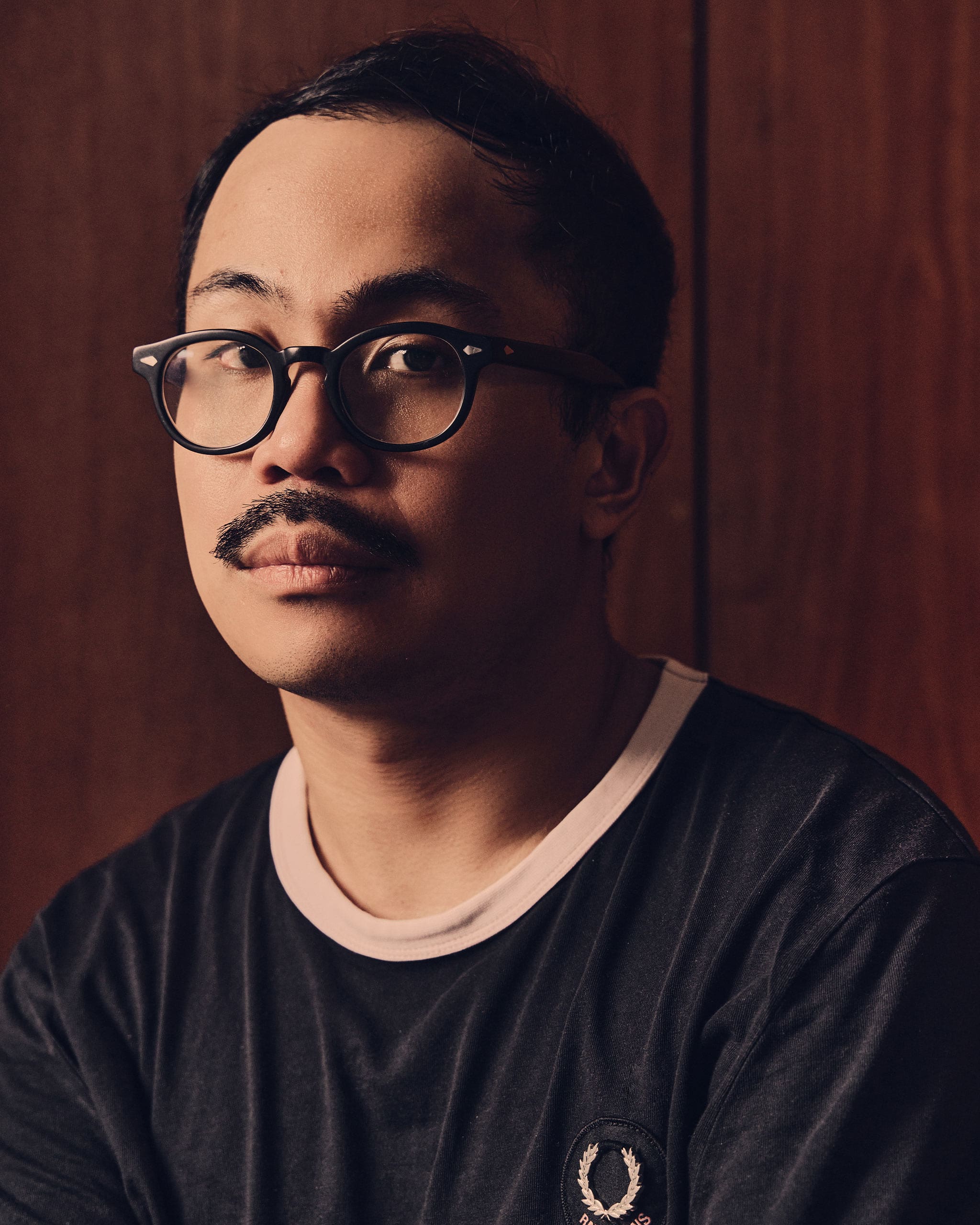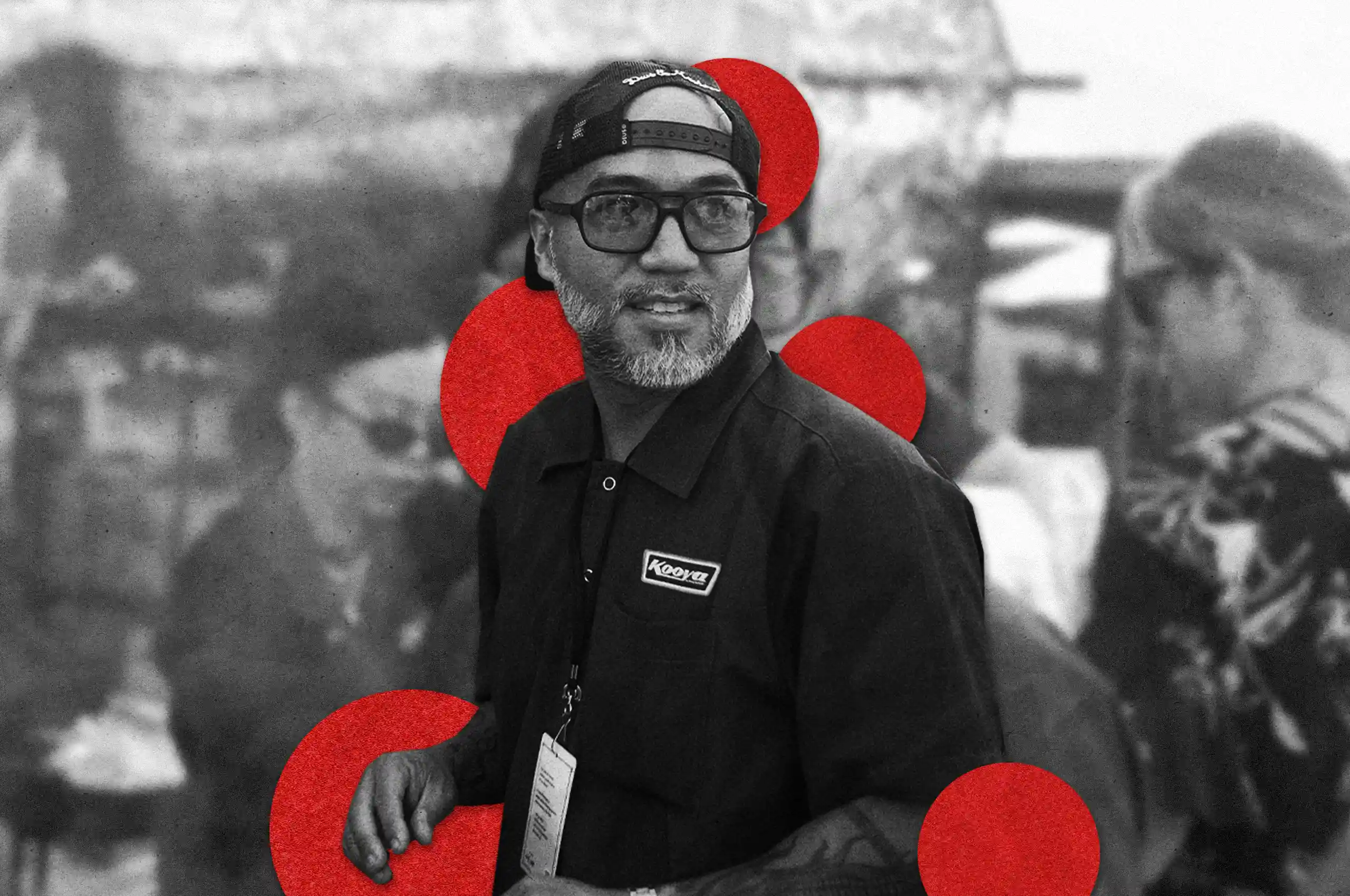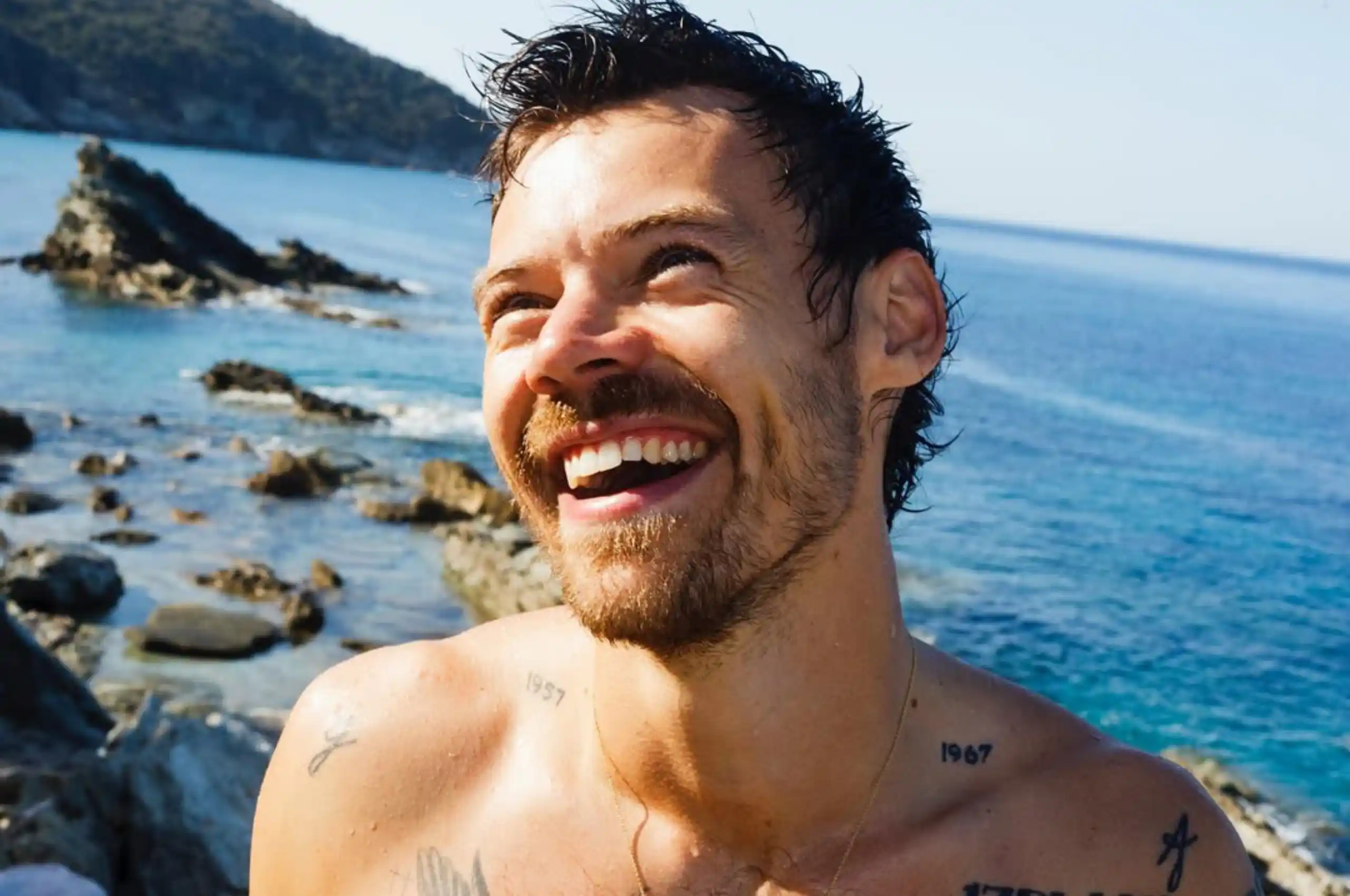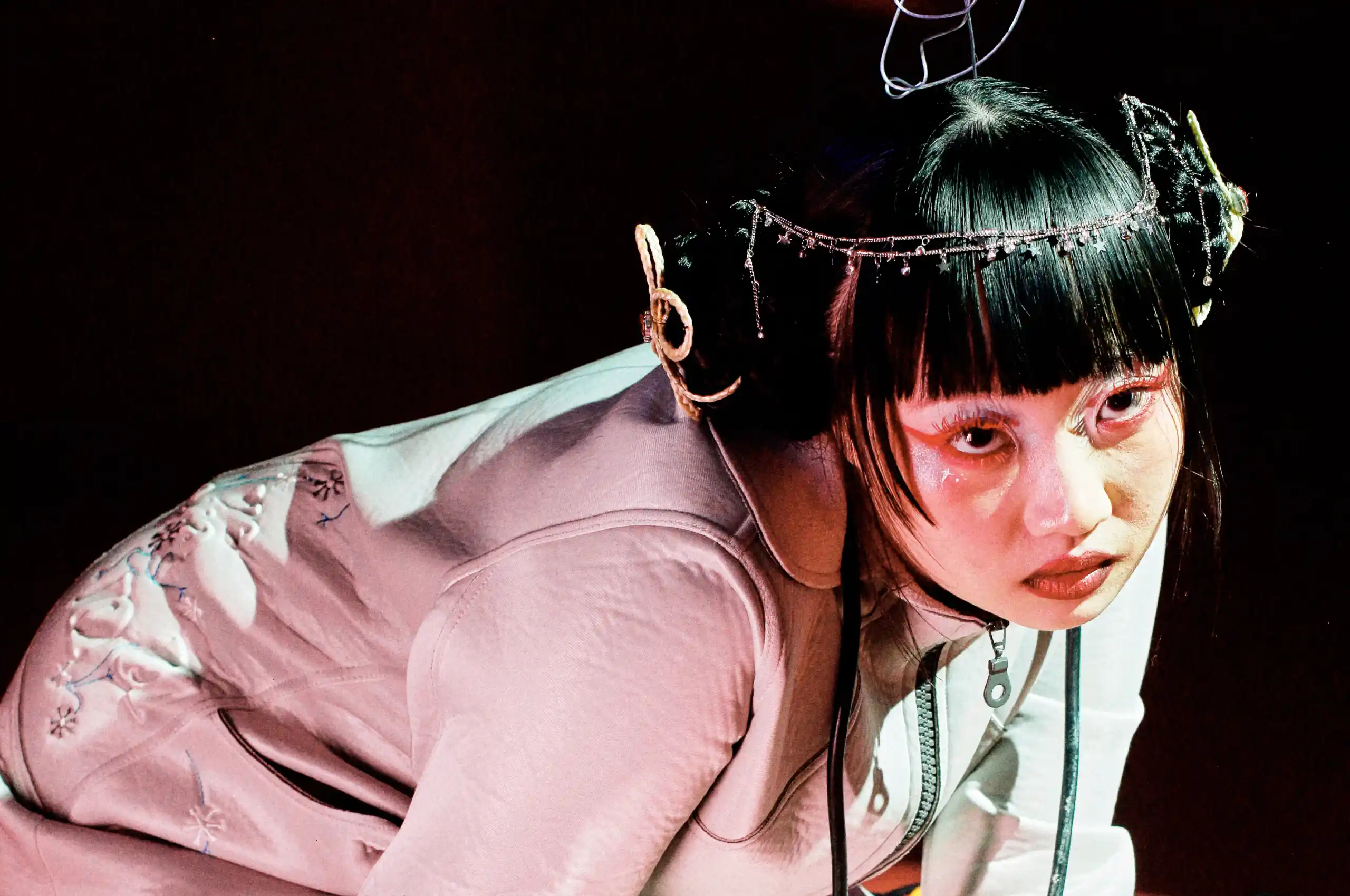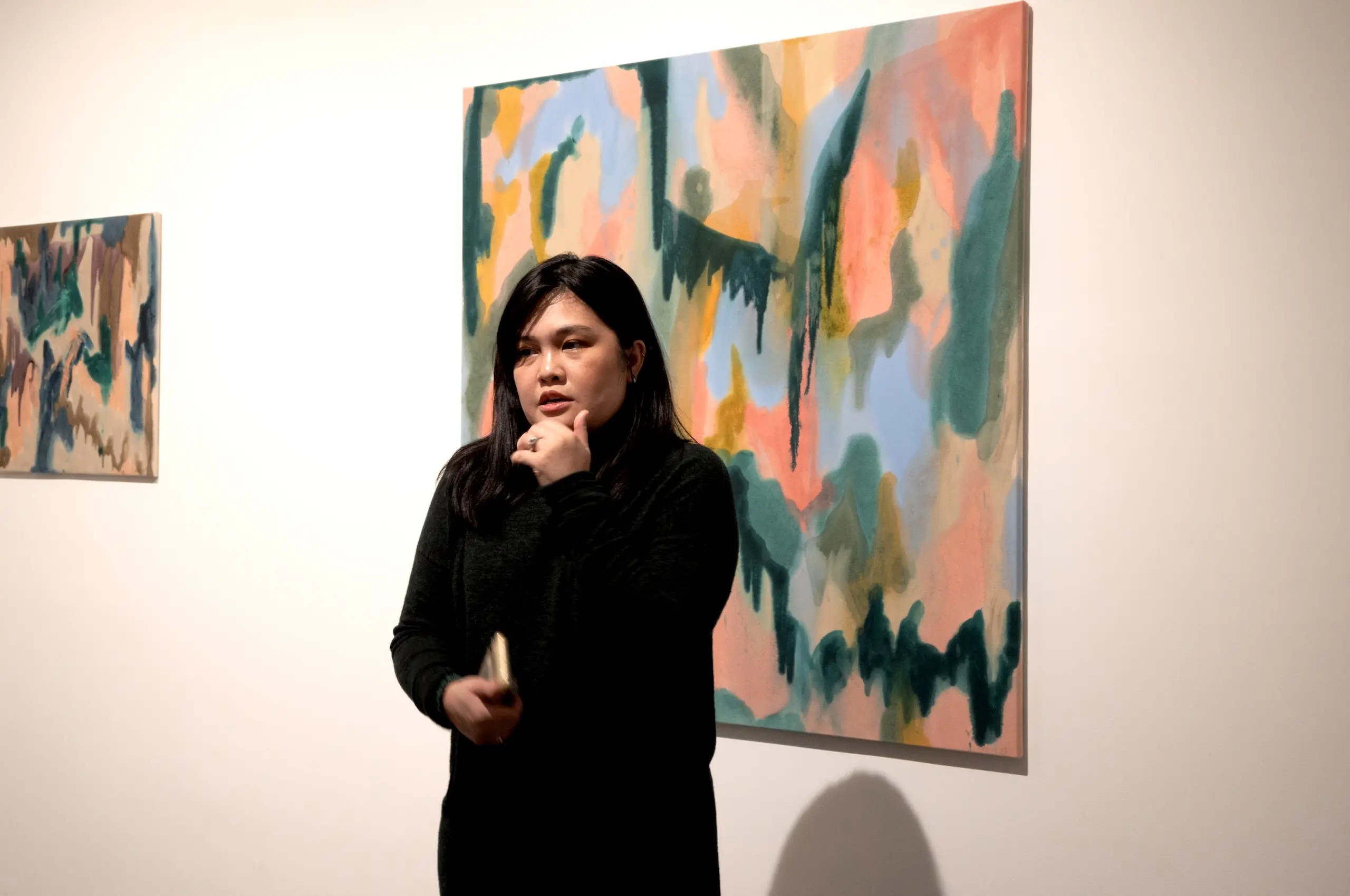As a 10-year-old sitting through the credits of School of Rock, the 2003 cult classic where Jack Black’s Dewey Finn rallies a group of tweens from Horace Green Prep into a rock-and-roll band, King Puentespina felt something shift. “I just wanted to know what happened after the credits,” Puentespina says. The movie ignited a need that quickly turned into an obsession. He started with guitar, then moved on to drums, holed up in his family’s band room.
“My dad used to ground me by locking our band room. That was my punishment. I was super addicted to just playing,” Puentespina says.
Today, Puentespina is the producer crwn, a prolific artist in his own right. After breaking out of the SoundCloud hobbyist category with his tracks “On My Mind” with Olympia (Anica Feliciano) and “Under Blankets” with Jess Connelly, Puentespina would arguably become the defining music figure of millennial Manila circa 2014. He was and is a fixture of the city’s nightlife, and a regular presence in the country’s most popular festivals like Wanderland, Malasimbo, and Wonderfruit. He is also the drummer of SOS, which may be why many of his tracks feature the most robust percussion. They’re groovy, dancey, and decisive — a lush blend of soul, R&B, and electronic, held together by a central motif. He prefers not to be categorized so simply, but any listener can agree that his music sounds like a good time.
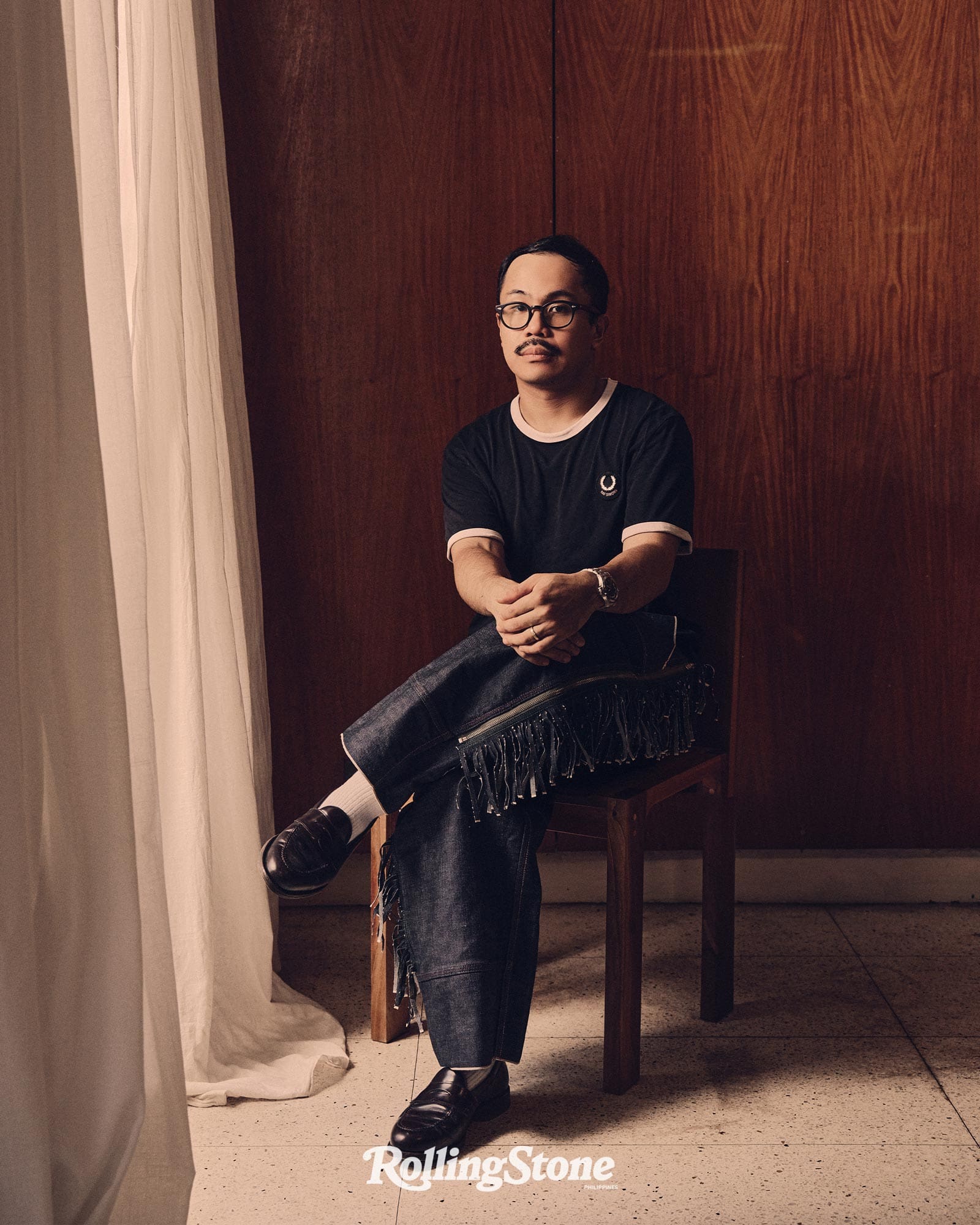
“I just love music, pare!” He says it as a joke, though it’s easy to see the sincerity in his claim. After all, there is a certain openness to his sound. “The first album I ever saved up for was the Emancipation of Mimi,” he says with pride. It’s this broad appreciation of music — be it K-pop, Britpunk, or bouncy techno — that has given Puentespina a wide runway as a producer.
Feliciano, who recently collaborated with him on her first album Feel The Same Way, describes him as a “master of genres.” “I still faintly remember our first session back in college for ‘On My Mind.’ Even though it was his first session with a writer, he knew exactly what to do,” Feliciano says in an email. “He’s very tasteful, knowing exactly when to stop adding layers to keep his beats classy.”
Another quality of Puentespina’s music is the immersion. In 2020, he founded Pool Records with Ada Laud — his then-girlfriend, now-wife — Mike Parker, and Alex Coloquio. Under the label, they connected artists with audiences through community-based events. His album Museo (2021) with rapper Curtismith (Mito Fabie) was an outdoor, afternoon concert at Pinto Art Museum. His soulful collaborative album with producer Six The Northstar, Equinox (2022), transformed an abandoned Makati office into a tightly packed rave. The launch of Séance, his debut album released in May 2024, saw all of King’s collaborators — past and present — summoned for a live performance, complete with occult set design and custom tarot cards.
“When we created Museo,” Fabie recalls over email, “I was deep in my alcoholism and wrote the whole thing under the influence. He did not judge me once.” He also says that Puentespina often worked with what he had. “He [built] on my verses, adding textures at the right moments to allow the words and feelings to shine through. He nudged me in a better direction when he thought I was playing it safe.”
“I just really like telling stories,” King, a self-professed fan of fiction and narrative film, explains But also as a listener or an audience member, I would want more layers to what I’m experiencing. There’s always something that drives the story.” To him, the best music albums in the world always have a story — they’re always stitched by something.
After I released [Séance], it was like, ‘Huh, it’s done. Okay, so what now?’ I think that’s what burned me out. The thought of, ‘Oh there’s more work.’
Puentespina is thirty now: Still making music, with several albums and regular international gigs on his resume, but this time he’s married and most recently diagnosed with gastroesophageal reflux disease, or GERD. “I suppose this is your thirties,” he tells me after recounting a particularly bad heartburn episode. The crwn project has been around for ten years, while King has been a professional musician for much longer than that — a fact he regards with a tentative mix of gratitude and anxiety.
“I’m one of the lucky ones,” he says. Lucky to still be “in the game,” to be booking gigs this long into his career. “Many of the guys who were around when I started… They’re not playing the game anymore.”
After releasing Séance, a horror-inspired dance record, Puentespina fell into a deep burnout. “[Séance] took a lot from me to finish — and for my team as well,” he explains. “After I released it, it was like, ‘Huh, it’s done. Okay, so what now?’ I think that’s what burned me out. The thought of, ‘Oh there’s more work.’”
It put him off music for a bit. So much so that he missed crwn’s 10th anniversary. “I didn’t even know when I turned 10. But I checked one of my first releases on SoundCloud, tapos 10 years na nga. Missed it. And I was like, ‘God I’ve been doing this for 10 years and I’m so tired,’” he laughs sadly.
Puentespina likens his creative process to a sponge left to soak, wringing itself out once it reaches full saturation. “I have a few months where I take in a lot of art or a lot of stories. I keep absorbing,” he says. “Then I give myself a month to write everything down and make a story or a motif out of it.”
SOS frontman and one of Puentespina’s oldest friends Roberto Seña describes him as decisive and precise. “[He] sets his intention on a project and will make his way there with little to no unnecessary movement,” Seña writes. “It sets boundaries which is great when you’re five very messy heads in one room. You can hear it from his older stuff to now, even the band’s music.”
While Puentespina’s inspiration is more fluid and observant, his production is structured and regimented. “Especially if it’s album mode,” he says. “I get stuff done quicker that way.” Above his computer, a printed hourly schedule is tacked to the wall. His day begins with a meditation and a run at 7 a.m. Afterward, he begins work at 9:00 a.m. through 6:00 p.m. A proper work day.
But a heavy hand has crossed out one of the day’s major activities, replaced with a hastily written new agenda, encircled several times for emphasis:
7:00 a.m. meditate & run
8:00 a.m. bathe, make coffee, and have breakfast
9:00 to 11:00 a.m. work on music STUDY PROGRAMMING
12:00 p.m. lunch
1:00 to 3:00 p.m. work on music and take meetings
4:00 p.m. afternoon break
5:00 to 6:00 p.m. wrap-up
“Have you been following your schedule recently?” I ask.
He sighs. “Not really. I should.”
It’s not just about making music anymore basically — and I’m not complaining… [It’s] more of the realistic side of… Can I sustain my life with music, still? That was more of the question.
Puentespina has just arrived from a nine-day showcase festival and songwriting camp that took place in Bali. Artists, songwriters, and producers from different parts of Asia performed at the showcase festival, followed by a four-day songwriting camp where delegates share ideas, and make music together.
“It was super refreshing,” he recounts of the people and energy. Producers were paired with artists and songwriters with the task of presenting original music to each other at the end of the day. “We were just doing it for music’s sake. And I think a lot of us lost that fun part of making music.”
“I got to talk to a lot of the delegates, and many of them were sort of in the same boat as I was,” Puentespina recalls. “They were also burnt out, feeling like they were just in a loop of making music, then going through the motions of promoting it.”
“All these campaigns, release schedules, money, and the pressures of the numbers game… What am I playing this game for? You have to be doing so many things. It’s not just about making music anymore basically — and I’m not complaining, because I know you have to do it to make your career more sustainable. Just more of the realistic side of… Can I sustain my life with music, still? That was more of the question.”
The first time we speak, he nearly decided that he wouldn’t be pursuing music full time. He’s picking up new skills. He’s learning how to code ⏤ looking into other opportunities that aren’t related to music. “I’ve decided I can separate music and my life,” he says. The next time we meet a few weeks later, he’s less sure.
“It’s an ongoing conversation,” he says when I ask. “I do want to do music full time, I just want something else to make it more sustainable.”
“When you’re 30, it changes things. I’m responsible for my family. I just got married. It’s a lot of life things. I don’t think I’ve gotten a chance to, like, life. It was always music first. Now, I think music has to go to the passenger seat. But, you know, it’s never leaving the car.”
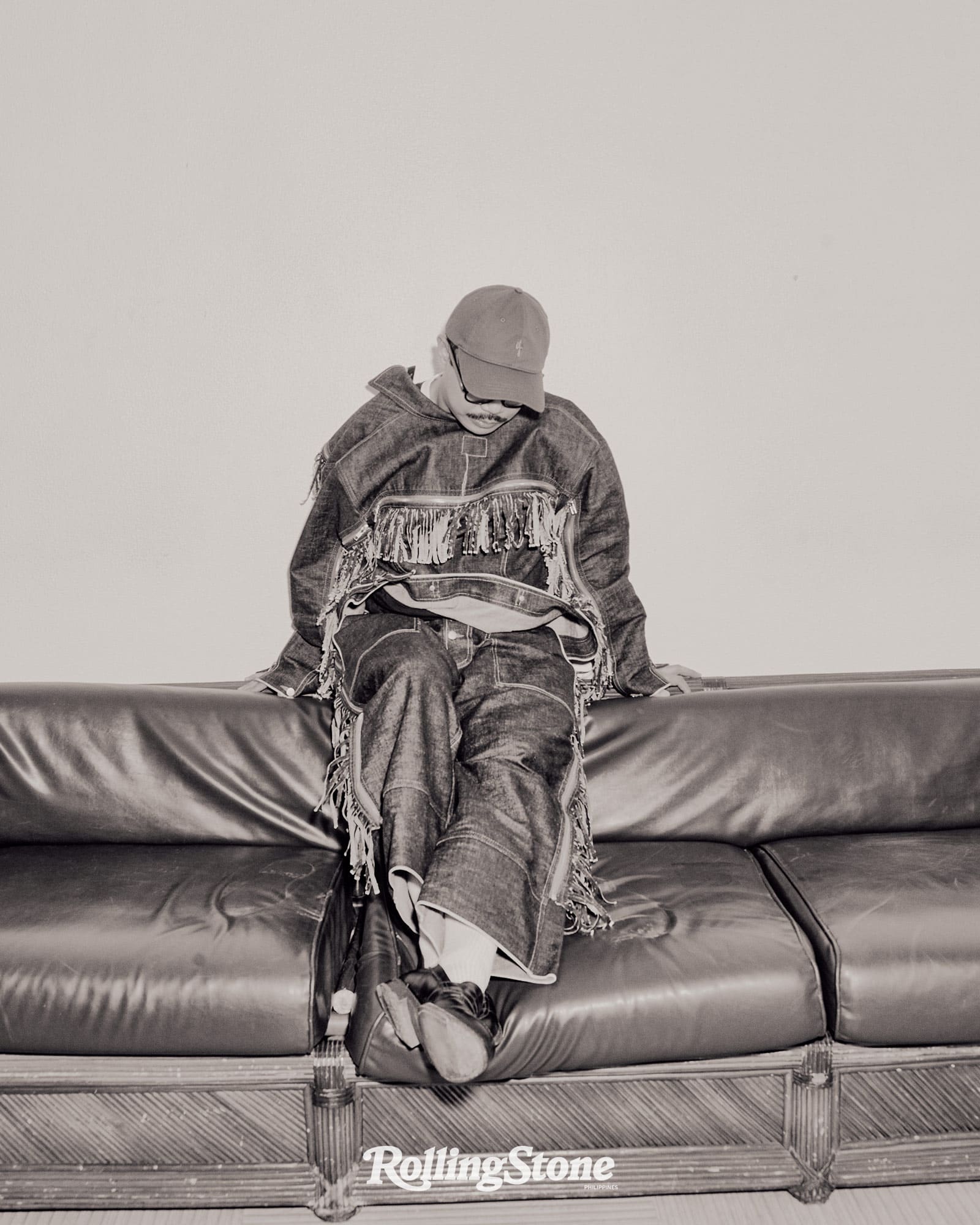
“Hirap!” he exclaims to diffuse the seriousness of the conversation. But the more we talk, the more we get to the heart of what Puentespina really longs for. “I want to keep my music as pure as it was, like in songwriting camp,” he says.
“One of my realizations was that Filipinos have to work double time just to get to the starting line,” he says. “The Singaporeans in the festival didn’t have to pay for anything. When we went to a showcase festival in Okinawa this year, those were the same realizations. All the artists didn’t have to shell out any marketing expenses. Meanwhile, us Filipinos had to do a fundraising gig, get sponsors — all of that just to get there. By the time you get to the starting line, you’re already burnt out.”
“How do you deal with the pressure to put yourself out there?” I ask.
“I think that’s where I’m struggling. But I really think there’s a way. I wouldn’t have lasted this long if I didn’t play by my own rules or kept my integrity in check” he says.
Puentespina is always listening. To the singsong trill of a golden-bellied gerygone in Quezon City. Old VHS tapes that capture the voices of his cousins and his mother’s New Year greeting from a time long gone. Sounds that might fade into obscurity in anyone else’s hands. Even his voice — a young King confidently introducing himself to a camera — becomes raw material. Sounds find a second life in his music.
“We were collecting footage for the wedding, and I thought it’d be nice to use the sounds for something,” he says. After creating a surprise video for his wife Ada featuring video clips from loved ones, he kept bits of his family archive for a future project, which eventually became the title track of Séance.
It was always music first. Now, I think music has to go to the passenger seat. But, you know, it’s never leaving the car.
The two-minute track is the last song on the album and feels like a departure from the rest of Séance. It’s a warm ambient track, pushed forward by a quiet metronome and the beeping of a pause and play button. A woman’s laughter is interspersed with giggling children. Birdsong is heard from start to finish. A steady synth, all in major chords, builds and transforms into an orchestral outro, ending when a young Puentespina says, “I am King, your director. Bye-bye.”
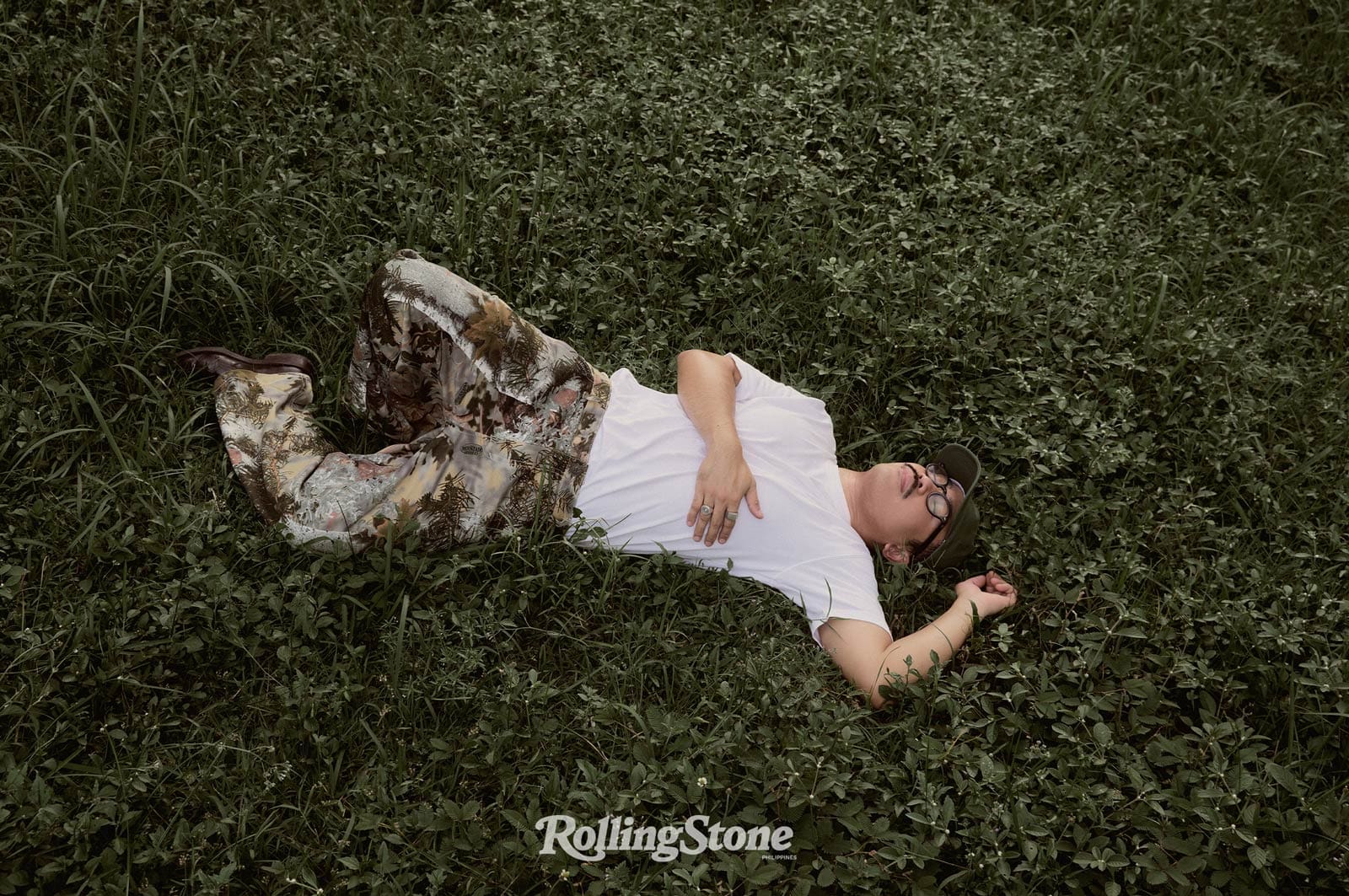
“I feel like that track, even without the album, can stand on its own. As a producer, I can’t really sing or write the lyrics. I do write sometimes, but I feel like Séance [represents] what I am as an artist in those two minutes. It’s a portal to everything good when everything was amazing. I can hear my cousins, my mom. And looking back, it was the only song I cried to when I made it. I made myself a time portal.”
“Why do you keep making music?”
“I don’t know. I think it’s just making that version of me, my childhood, my past self, or like the kid watching School of Rock. I want to make that kid proud if he sees where I am now. I think that’s what really keeps me going. The King that says ‘I’m a director’ in Séance. I love that. I love pleasing that version of myself. That’s what keeps me going.”


